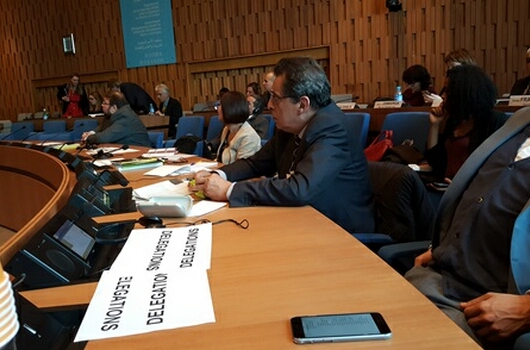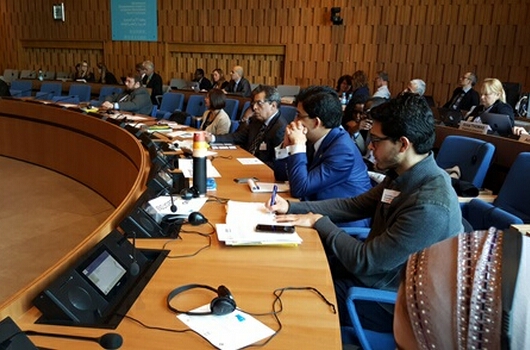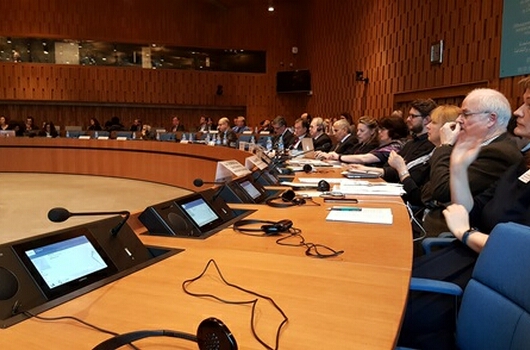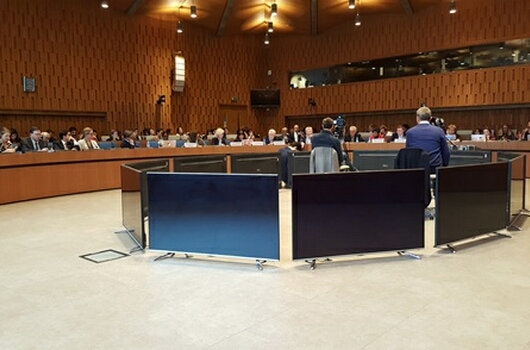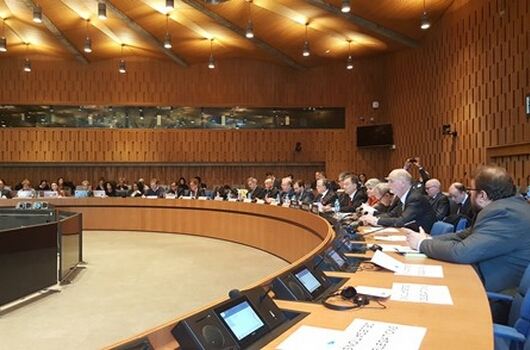Experts raise questions at UNESCO headquarters: “Why is journalism increasingly target of criticism?”
Under this large and very topical interrogation, UNESCO organized, in its headquarters in Paris, on 23rd Marchtwo round table discussions divided up into four sessions, led by over twenty panelists and hundreds of participants, including experts, media decision-makers, researchers, public policies makers, ambassadors to UNESCO, heads of regulatory bodies, professional unions, human rights NGOs…
“Without the press, the night is dark” was the Victor Hugo saying that Ms. Irina Bokovaevoked in her opening introduction, to underline that “although journalists enlighten the public, they’re nowadays target of violence, conflicts and violations, as well as criticism”. Recalling that the original and essential nature of media and journalism is to develop and promote the critical thinking, Ms. Bokova insisted on the need for a “media literacy “, as an indispensable lever to meet objectives of2030 for sustainable development, with the aim ofensuring an environment of freedom and pluralism, “online and offline”, that can allow the emergence of an enlightened citizen, able to act positively within the “democratic community”.

To foster the critical thinking, in compliance with professionalism and rigorous respect of ethics, is the only mission of media, which are, by nature and praxis, in terms of democracy, in service of the people”, declared, for his part Mr. Frank La Rue, Assistant Director-General for Communication and Information at UNESCO. “Truth happens to be a process; it is based on dialog, after freedom of expression and right of access to information has been acquired, defended and effective, in a given context”, he added. However, said he, “In our world today, we have to enable the population, the citizens, to understand the media, including how to use the latter, or let’s say new media, which are accessible to ordinary citizens and within their reach. That is shown by the invasive reality, throughout the world, of social networks, that become increasingly reliable sources for traditional media, with all the risks regarding false news and serious failings to comply with reality, rights and ethics”.
One of the four sessions was dedicated to the issues challenging journalism because of new media, social networks and algorithms of WEB giants (the “GAFA”): “Audience crisis, social networks, computer-generated disinformation “. Another session was focused on “economic models and new technologies”, while the other was fully devoted to challenge posed by the media to representative democracy, through “the emergence of identity politics movements “. A second round table was entirely dedicated to “media literacy”, and ethics, to which the future of journalism training already depends.
In his interventions during these debates, Mr. Jamal EddineNaji, Director-General of the HACA listed the main challenges facing both representative democracy and journalism as part of the latterstructuring human and professional activity as well as democracy’s required citizenship, particularly in the south so-called “info poor” countries:
- Professional appropriation by journalists and media, of local information, real lives of populations, closely perceived on a daily basis. This information is the most dominant in new media and social networks, said he, to the point that it explains largely why these media audience push away and gradually reduce the audience of the so-called traditional media, especially the in public sector. In these countries, the dominant phenomena, which are youth, graduate unemployment, in addition of connectivity increasingly offered to the smallest urban, and even rural centers, legitimately and naturally encourage the creation of blogs, electronic newspapers, websites and platforms that necessarily nourish and exploit local life, including its information and rumors, its fake news…..This happens especially when the local information is banned by the national informational system and/or disregarded by traditional media. In fact, the latter are always fascinated by the Centre, the capital or the international information that creates the buzzin the so-called “info-rich” countries;
- What is considered, adds Mr.Naji, as the first battle to be fought in these countries: the enactment of a law of access to information, that frees this information and its sources, both in national and local levels, in all the State’s sectors of activity, for representative positions or elected representatives levels, for the whole society in general;
- The second battle, or line of defense to fought against corrupted journalism, turned into a crisis of credibility due to “avatars” of digital media, is to regroup all levers and required conditions in order to ensure an effective auto-regulation for new and traditional media, through the institutionalization of ethical charters and peers councils or organisms that make sure journalists and content professionals meet with best practices, with the support of international organisms, particularly in terms of references, like the IFJ’s Article 19. In effect, these organisms militate both for the “prestige” and the “nobility” of this profession and its sense of dual responsibility required for democracy: ethical and professional duty. Auto-regulation, that Mr. Frank La Rue advocates can even lead, according to Mr.Naji, to a system of certification or labeling, which would make the journalist, a-new or traditional- media distinguishable by the voice of their peers, by their profession as a whole, in a particular country.
م

